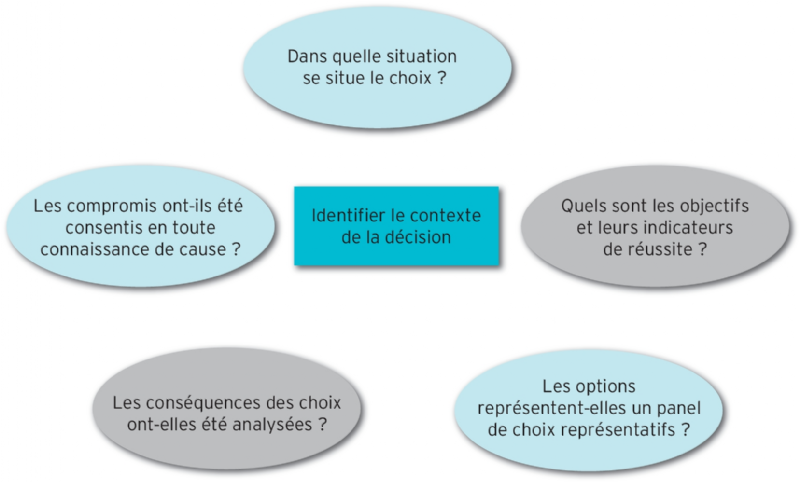FTC Probe Into OpenAI: A Deep Dive Into ChatGPT's Future

Table of Contents
The FTC's Concerns: Privacy, Bias, and Misinformation
The FTC's investigation into OpenAI likely centers on several key areas of concern related to ChatGPT's capabilities and potential harms. These concerns highlight the crucial need for responsible AI development and deployment.
Privacy Violations
The FTC's focus on OpenAI's data handling practices is likely driven by concerns about user privacy and data security. This includes:
- Data breaches and unauthorized access: The sheer volume of data processed by ChatGPT makes it a prime target for cyberattacks. Any breach could expose sensitive user information, leading to significant legal and reputational damage for OpenAI.
- Compliance with data protection regulations: OpenAI's adherence to regulations like the General Data Protection Regulation (GDPR) in Europe and the California Consumer Privacy Act (CCPA) in the US is under intense scrutiny. Non-compliance could result in hefty fines and legal action.
- Consent and transparency: The FTC will likely investigate whether OpenAI obtained proper consent from users regarding data collection and use, and whether its data privacy policies are transparent and easily understandable. Lack of transparency and inadequate consent mechanisms could constitute serious violations.
Algorithmic Bias and Discrimination
ChatGPT, like many LLMs, is trained on massive datasets that may reflect existing societal biases. This can lead to discriminatory or unfair outputs. The FTC is likely investigating:
- Examples of biased outputs: Instances where ChatGPT generates responses that perpetuate harmful stereotypes based on race, gender, religion, or other protected characteristics are of particular concern.
- Bias mitigation techniques: The FTC will likely examine the measures OpenAI has implemented to identify and mitigate bias in its algorithms. The effectiveness of these techniques and the ongoing efforts to improve them will be key aspects of the investigation.
- Legal liabilities: The potential for biased outputs to cause harm to individuals and groups could lead to significant legal liabilities for OpenAI.
Misinformation and the Spread of Falsehoods
ChatGPT's ability to generate human-quality text, both factual and fictional, poses a significant risk for the spread of misinformation and disinformation. The FTC is likely examining:
- Measures to prevent misinformation: OpenAI's efforts to detect and prevent the generation of false or misleading information are likely under scrutiny. The effectiveness of these measures and the need for stronger safeguards are key considerations.
- Malicious use of ChatGPT: The potential for bad actors to use ChatGPT to create convincing deepfakes, spread propaganda, or engage in other malicious activities is a serious concern.
- Content moderation policies: The FTC will likely assess the adequacy of OpenAI's content moderation policies and the effectiveness of its mechanisms for flagging and removing harmful or misleading content generated by ChatGPT.
OpenAI's Response and Future Strategies
OpenAI's response to the FTC investigation will be crucial in determining the future of the company and the broader AI industry. Their actions will set a precedent for responsible AI development.
Addressing FTC Concerns
OpenAI's response should demonstrate a commitment to addressing the FTC's concerns proactively. This includes:
- Strengthening data privacy and security: Implementing robust measures to prevent data breaches, enhance user privacy, and ensure compliance with relevant regulations.
- Improving bias mitigation: Investing in research and development to improve bias detection and mitigation techniques and increasing transparency in algorithmic processes.
- Enhancing content moderation: Developing and implementing more robust content moderation systems to combat the spread of misinformation and harmful content.
Shaping the Future of Responsible AI Development
The FTC probe could catalyze a shift towards more responsible AI development practices across the industry. This involves:
- Prioritizing user privacy: Placing user privacy and data protection at the forefront of AI development.
- Developing robust bias detection frameworks: Creating more sophisticated tools and methods for detecting and mitigating bias in AI systems.
- Collaboration and ethical guidelines: Fostering collaboration between researchers, policymakers, and industry stakeholders to establish ethical guidelines and best practices for AI development and deployment.
Implications for the Future of ChatGPT and the AI Industry
The FTC's investigation has wide-ranging implications for the future of ChatGPT and the AI industry as a whole.
Regulatory Scrutiny and the Future of LLMs
The FTC's actions will likely set a precedent for increased regulatory scrutiny of AI technologies. This could lead to:
- Increased regulatory pressure: Other companies developing and deploying LLMs will likely face similar scrutiny and potentially stricter regulations.
- Stricter regulations on data and algorithms: Regulations could mandate greater transparency in data collection practices and algorithmic processes.
- Impact on innovation: Increased regulation might slow the pace of innovation in the AI industry, but it could also lead to more responsible and ethical development practices.
User Trust and Confidence
The FTC investigation highlights the vital importance of user trust and confidence in AI technologies. The investigation's outcome will significantly impact:
- Public perception of AI: The outcome could either enhance or diminish public trust in AI technologies depending on OpenAI's response and the FTC's findings.
- Transparency and accountability: The need for greater transparency and accountability in AI development and deployment will be emphasized.
- Adoption and use of LLMs: The long-term adoption and use of LLMs like ChatGPT will be heavily influenced by public perception and trust.
Conclusion
The FTC's probe into OpenAI and ChatGPT marks a critical turning point for the future of artificial intelligence. The investigation's outcome will significantly shape how AI technologies are developed, deployed, and regulated. OpenAI's response and the resulting changes to its practices will be pivotal in determining the future of ChatGPT and the entire AI landscape. Understanding the implications of this FTC probe is paramount for anyone invested in or impacted by the advancements and ethical considerations surrounding this powerful technology. Stay informed about the ongoing FTC investigation into OpenAI and its impact on the future of ChatGPT and similar large language models.

Featured Posts
-
 Walker Buehlers Red Sox Debut Full Lineups For Red Sox Vs Blue Jays Game
Apr 28, 2025
Walker Buehlers Red Sox Debut Full Lineups For Red Sox Vs Blue Jays Game
Apr 28, 2025 -
 75
Apr 28, 2025
75
Apr 28, 2025 -
 Mets Rotation Battle Significant Change Gives Pitcher The Advantage
Apr 28, 2025
Mets Rotation Battle Significant Change Gives Pitcher The Advantage
Apr 28, 2025 -
 E Ink Spectra
Apr 28, 2025
E Ink Spectra
Apr 28, 2025 -
 Tylor Megill Returns To Mets Rotation Deniel Nez Optioned
Apr 28, 2025
Tylor Megill Returns To Mets Rotation Deniel Nez Optioned
Apr 28, 2025
Latest Posts
-
 Dechiffrage Macroeconomique L Euro Et Les Defis Actuels
May 12, 2025
Dechiffrage Macroeconomique L Euro Et Les Defis Actuels
May 12, 2025 -
 Resilience De L Euro Un Dechiffrage Des Facteurs Cles
May 12, 2025
Resilience De L Euro Un Dechiffrage Des Facteurs Cles
May 12, 2025 -
 Analyse Du Dechiffrage Comment L Euro Surmonte Les Pressions
May 12, 2025
Analyse Du Dechiffrage Comment L Euro Surmonte Les Pressions
May 12, 2025 -
 Le Dechiffrage De La Stabilite De L Euro En Periode De Tension
May 12, 2025
Le Dechiffrage De La Stabilite De L Euro En Periode De Tension
May 12, 2025 -
 Qui Est La Compagne D Eric Antoine Rumeurs Et Realite
May 12, 2025
Qui Est La Compagne D Eric Antoine Rumeurs Et Realite
May 12, 2025
